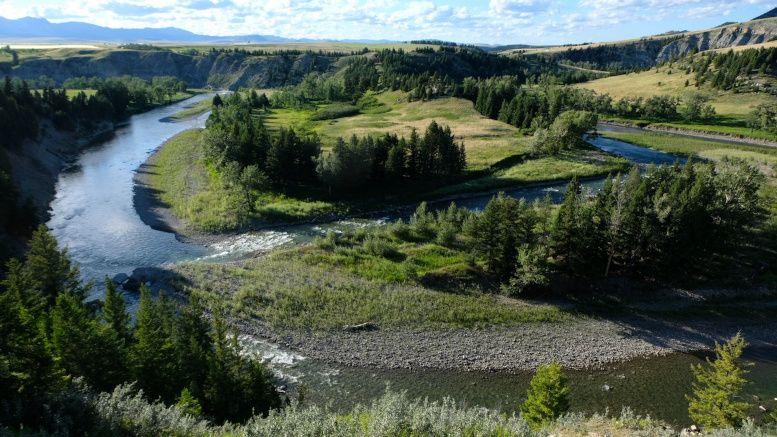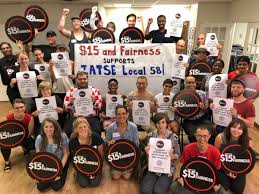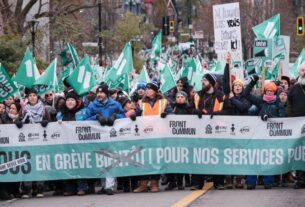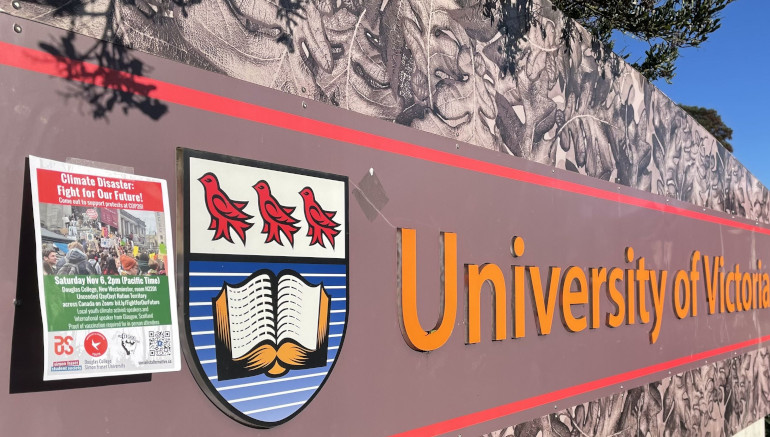Jason Kenney has announced his resignation as Premier of Alberta and leader of the United Conservative Party (UCP). This after 48.6 percent, nearly half, of the party voted against him. Kenney consistently has been one of Canada’s most unpopular premiers. Yet, just a week after he announced his resignation, a new poll had the UCP in front of the NDP.
The UCP executive decided that Kenney will remain the interim leader until a new one is chosen. Sometime in the next few months the party will hold a leadership contest hoping to find a fresh face before the election in 2023.
Kenney’s Demise
Kenney’s primary failure was the provincial response to the COVID-19 pandemic. Repeated policy zigzags raised the ire of both the left and right, obviously for different reasons. Kenney led an attack on health care (doctors’ contracts and nurses’ wages), education (slashing funding and butchering curriculum), social supports, and workers’ legal rights and unions. The UCP government opened the gates to Australian coal companies and handed over billions of dollars to the oil industry. They cut corporate taxes, resulting in tremendous deficits and increased taxes for working people, then removed caps on insurance and utility bills. There was widespread anger against Kenney from all quarters.
Kenney consistently blamed Ottawa, the NDP, environmentalists, the so-called “woke left” and “woke corporations,” etc. for Alberta’s economic and social woes, but he was simultaneously unwilling to go far enough to please the far-right layers his message excited, costing him their support. To the right populists, he was ultimately just another elitist. Kenney even lost support amongst the center-right due to costly political mistakes, and a damaged reputation and image, creating fears that the UCP was guaranteed to lose the next election to the NDP.
Since the start of 2021, the NDP led in opinion polls, sometimes by as much as 10 percent and the UCP feared a major defeat.
Kenney’s resignation comes out of deepening polarization in Canadian society, and a shift further to the right of the UCP base and membership. The right will feel further empowered, having removed first O’Toole and then Kenney. The greatest factor driving polarization of the UCP base was the right-wing response to zigzagging and contradictory COVID policies — announcing the “Best Summer Ever” and then delivering new restrictions and hospitals in crisis. A section of this right wing opposes any COVID rules — masks, vaccines, etc.
Right-wing demonstrations resonated with a significant minority of Albertans, including some UCP MLAs, while repulsing many more. From the initial anti-mask/anti-vax protests to the so-called “Freedom Convoy” in Ottawa, and linked events like the Coutts’ border blockade or the endless sympathy convoys through Edmonton and Calgary, Canada has entered a new era of political polarization, and Alberta is in the vanguard of this national change.
Conservatives’ Dilemma
Kenney originally said that he only needed a “50 plus 1” mandate to stay but changed his mind and resigned after receiving the results. The results show that the United Conservative Party has become the Dis-united Conservative Party.
The more extreme right wing of the UCP succeeded in getting rid of Kenney. Before the leadership vote Kenney said of his opponents, “I will not let this mainstream conservative party become an agent for extreme, hateful, intolerant, bigoted and crazy views. Sorry to be so blunt with you but you need to understand what the stakes are here. The lunatics are trying to take over the asylum. And I’m not going to let them.”
The party now has to find a new leader and reunite behind them. Two prominent contenders for the leadership are former Wildrose Party leaders Brian Jean and Danielle Smith, who are both further to the right than Kenney. Jean is polling higher than Smith, so far. Smith’s decision in 2014 to cross the floor (as the official Opposition leader) and join the Progressive Conservative government was a major betrayal to the Wildrose party and its supporters.
The UCP was formed in 2017 by uniting the Conservative and Wildrose parties, but fault lines remain in the party. The past success of the Conservatives, ruling Alberta from 1971 to 2015, was based on having support in urban Alberta and on oil; Wildrose represented more of rural Alberta. Oil revenues flowed into the government, so the province had low taxes for workers and businesses, higher employment than the rest of Canada, and better than the Canadian average public services. Under Premier Peter Lougheed the conservatives were Red Tories. As part of a broad international trend political parties moved right in the 1990s and the Conservatives were no exception under Klein.
Still, a section of right-wing politicians wanted to go further and the Wildrose grew. With Danielle Smith as leader, it took 34 percent of the vote in the 2012 election. In the 2015 NDP election victory, Wildrose took 24 percent of the vote and elected more MLAs than the Conservatives. To overcome this historic division on the right, Kenney descended from the realm of federal politics and pulled the Conservatives and Wildrose into one party, calling it “United.”
While the Conservatives have ruled for most of modern Alberta’s history, the province was never as solidly right-wing as the election results and many people think. Over recent years the province has become even less favourable to the right as it becomes more urban and diverse. Visible minorities are nearly 25 percent of the population overall and more in cities. Over two-thirds of Albertans live in metropolitan Calgary and Edmonton. The two big cities did not vote conservative in the recent municipal elections.
The UCP’s leadership election is likely to reveal deep divisions in the party. The federal conservatives are currently involved in a bitter leadership contest with candidates aggressively attacking each other. Alberta’s campaign may be the same.
The right populist rhetoric goes down well with the party’s membership, but can it win in urban Alberta? This is the dilemma for Alberta’s and Canada’s right populists.
NDP’s Missed Opportunity
There was real, palpable, left-wing rage against Kenney hanging in the air in 2020 and 2021. The NDP was ahead in almost every opinion poll in 2021, sometimes with a lead of over 10 percent. At the end of 2020, the Alberta Federation of Labour (AFL) launched the idea of a general strike and launched a campaign to gauge support for it.
Yet as the 2023 election drew nearer and the UCP trailed in the polls, the NDP and AFL dropped campaigning, and stopped talking about large demonstrations and strikes. There was no serious campaign to kick Kenney and the UCP from office. Instead, they hoped to win the election because their opponents were in crisis. The remarkable anger once hanging in the air has practically evaporated. It is always a mistake to rely on a political opponent’s collapse, especially the ones representing the ruling class. They have many ways to recover, and access to much more favourable media coverage and propaganda.
Unfortunately, Kenney’s resignation is not the product of movement from the left or from unions. The right-wing of his party kicked him out and they have momentum. The majority government has been able to ignore its external opponents and do as it wishes.
With Kenney’s impending exit, the UCP has gone from trailing the NDP in an opinion poll by nine percent to leading by two percent in just two months. The unions and the NDP need to regain the initiative from the right wing. Now, with the UCP deeply divided and turning inwards to find a new leader, would be the perfect opportunity for the NDP to launch a major campaign to kick out the UCP.
While the NDP have begun campaigning for the next election ahead of the typical schedule, they have decided merely to present themselves as a stable and united alternative with a plan for “all Albertans.” The next provincial election could wind up being close if the UCP has a fresh new face. The NDP has not rallied support in rural areas or smaller communities, despite several key issues that could be a focus of campaigns (e.g., abandoned oil wells and related municipal tax increases, water conservation and water access, new green jobs and energy diversification). Workers in resource towns and smaller municipalities need new jobs in new industries so that their communities are not liquidated by market forces and policy changes. Paid training should be provided to make this transition possible — this goes hand in hand with transitioning to a green energy economy.
Some of these issues are part of the NDP platform, but they have yet to lead the kind of campaign necessary to convince the non-urban working class. If the NDP was to lead campaigns on class-struggle issues between elections — like fighting for jobs as part of a socialist just transition — both in large cities and smaller communities, the results could be much better for them and for workers.
Internationally, while some people are being pushed to the right, many are also being pushed to the left. This process has been unfolding over the last several years in the context of the Bernie Sanders’ campaigns south of the border, the Black Lives Matter movement, the COVID-19 pandemic, accelerating climate crisis, solidarity with Indigenous land defenders, a cost of living and housing crisis, and new waves of unionization in North America. In broader Canadian politics, a vacuum exists on the left — there is no major political force taking up a class-struggle approach and consistently winning major victories for workers on health care, education, wages, or climate and green jobs. In Alberta, the NDP are acting as a sponge for some of this leftward drift, but they would be able to attract even more new layers of people by taking up the class struggle. The limited approach of the NDP will lead to future defeats in the unfolding political landscape and will lead to disappointment and disillusionment in the left, emboldening the right. The emergence of a new left-wing political force, capable and willing to unite the numerous manifestations of class struggle under a single banner, would be earth shattering.
What’s Next?
There are several simultaneous political struggles against conservative governments in Western Canada. In Alberta, immense damage has been caused by Jason Kenney and the UCP. The government in Saskatchewan has also failed workers by voting against paid sick leave for all workers, while the minimum wage is the lowest in the country, for now. The minimum wage in Manitoba remains low. Conservatives use much of the same playbook throughout the West, attacking public services and favouring big business and fossil fuel corporations.
Alberta’s NDP has a decent chance to win the next election, but what comes next? How can the right-wing be defeated decisively?
Mass movements and strikes will be needed to defeat conservative governments and their efforts to privatize health care, dismantle public institutions, ignore pandemics, sell off natural resources to extractive foreign corporations, divide the working class, and ignore the threat of climate change. Instead of playing electoral politics, a fighting approach against the ruling class and their political representatives must be adopted. Winning political and economic battles will require rebuilding the labour movement, showing solidarity with youth climate movements and Indigenous land defenders, and providing an independent political alternative on the left. It will require more workers and youth to enter into struggle and join or start organizations that are capable of participating in the class struggle. As workers, we need to fight for our class interests by forming and joining our own democratic working-class organizations including trade unions, our own political parties, and community activist groups.
Young workers and students have a decisive role to play, especially when it comes to fighting climate change — youth have been the leaders of climate strikes around the world. Indigenous land and water defenders have always been at the forefront of the fight against systemic racism, colonization, resource extraction, pollution, and climate change by defending their traditional territory. In March 2021, the Niitsítapi Water Protectors led a protest in downtown Calgary against new coal mining projects. It was this kind of pushback from Indigenous Peoples, and the public outcry from many Albertans and environmentalist groups, that forced the reinstatement of the 1976 Coal Policy, halted coal exploration on category 2 lands, and led to the denial of the Grassy Mountain Coal Project. Only a few years ago, socialists and workers fought for a $15 minimum wage and won it in several provinces. All of these movements need to be linked together with a socialist program, independent working-class politics, and a fearless class-struggle approach.
Developing political clarity and a leadership that is up to the task of class struggle is vital in this new period of deepening political polarization. As new leadership and new political forces on the left emerge, they must advance the demand for democratic public ownership of the economy and democratic economic planning — absolute requirements for solving the accelerating ecological and climate crises. A truly democratic economy and society is necessary to ensure high quality public health care, an expansion of public services, a socialist just transition with jobs and a real living wage for all, and equal rights for all.
If you want to fight back against the right wing, join Socialist Alternative!




